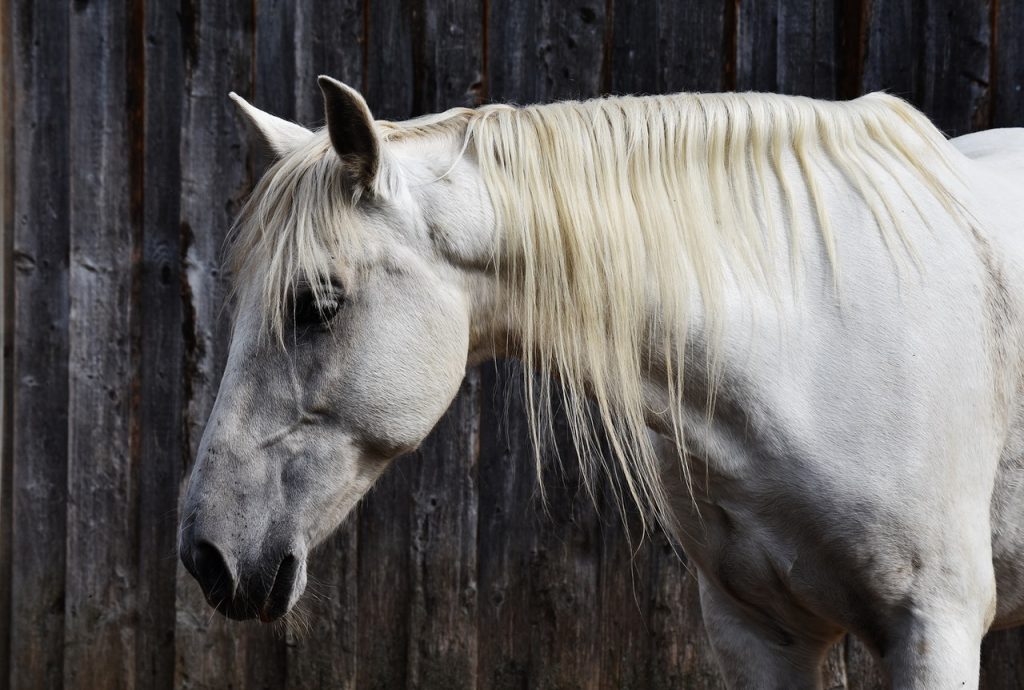Tuesdays with Tony
In preparation for my upcoming seminar this month, lets discuss asthma. Not only is asthma extremely frustrating, it can actually lead to life threatening situations for your horse. You all have read my previous blogs and watched my docs’ seminars about asthma and allergies. I know you are already familiar with the ins and outs of the causes, symptoms and treatments for asthma. So, let’s focus today on what can happen if symptoms are left untreated.
Asthma
Asthma, or heaves, is a disease that typically affects middle-aged to older horses, but it does not discriminate and can affect young horses as well. Asthma is an all-encompassing term that actually refers to disease processes such as heaves and inflammatory airway disease. For the sake of today’s topic, we will use the umbrella term Asthma and all that it means. As a refresher, asthma is inflammation of your horse’s airways that can lead to cough, nasal discharge, labored breathing, and exercise intolerance. Asthma can be caused by a number of different factors like dust, mold, pollen, and heat and humidity. Horses in Florida are very often affected by asthma in the summer months when it’s hot, sticky and steamy out. That doesn’t mean that horses won’t develop asthma in the colder months. As you all know, horses do whatever they want, whenever they want, and however they want. Inconsiderate creatures, if you ask me.
Treatment
Treatment for asthma can be as simple as antihistamines or as complicated at hospitalization with oxygen supplementation. The key to treating asthma is to catch the signs early, have your veterinarian examine your horse and start treatment as soon as possible. More often than not, asthma becomes a chronic condition that requires lifelong treatment when symptoms arise. Environmental management is also key to keeping symptoms under control. Where my docs often run into trouble with treating asthmatic patients is when the symptoms have been left untreated for a long time or when acute, severe flare-ups occur. When asthma symptoms are left untreated, horses can end up in respiratory distress. From what I have heard this is very scary for owners. The sounds their horses are making have been described as anything from a lion growl to a dinosaur roar. Horses often seem to be out of sorts and may appear to be neurologic since they can’t get enough oxygen. Similarly, horses may show signs of colic resulting from pain induced from abdominal musculature contraction. They may go off feed, and signs of choke have also been reported.

Once a horse is in respiratory distress resulting from asthma, treatment becomes increasingly complicated and is more time consuming that primary treatment for asthma. My docs may have to reach for what they call ‘rescue medications’ including Ventipulmin, Butorphanol and Buscopan which are all aimed at opening your horse’s airways and reducing inflammation. The really fun part about these treatments is, Ventipulmin is on indefinite backorder, so your veterinarian may not even be able to supply your horse with this medication. They may also decide to treat your horse with a very high dose of steroid to reduce inflammation in the airways or start your horse on anti-histamines to combat the allergic component of asthma. So now we are up to 5 medications that your horse is receiving to help regulate his breathing.
The Next Level
If these treatments do not relieve your horse, further steps to get him out of respiratory distress include treatments with an inhaler or nebulizer. An inhaler for your horse delivers a unique steroid directly to his airway. Nebulizers allow horses to inhale medications directly to their airways, including anti-inflammatory medications, bronchodilators and antibiotics. I don’t know about you, but all I can see right now is dollar signs. It seems like all these treatments could really add up quickly. Unfortunately, treatment may not end here. What if your horse does not respond? Then what do you do?
The next step is hospitalization. Hospitalization which will likely include oxygen supplementation and frequent nebulizer treatments. If your horse is unresponsive to treatments on the farm and requires hospitalization, the reality of the situation is, your horse is very sick and may not recover. Sadly, horses that do not respond to the rescue medications often can’t survive the stress of a trailer ride to the hospital, and euthanasia becomes the most humane option.
Risk vs. Reward
These treatments are not without risk. High dose systemic steroids increase your horse’s risk of developing laminitis. Frequent doses of Ventipulmin may decrease your horse’s response to the medication and decrease its efficacy. Nebulizers and inhalers lower the risk of systemic medications, but they are expensive, and medications for them are not always readily available.
The take home message I want you all to get from this is to call your veterinarian at the first sign of asthma. At that first cough, or any change in your horse’s normal attitude towards work, call your veterinarian. You’ll thank me later, I promise. Treatment of early onset asthma is significantly easier and may just involve environmental changes and anti-histamines. At times, my docs will turn to systemic steroids as treatment, but when treatment is started early they are often able to get your horse on a lower dose which reduces the risks. Alternatively, there are some holistic options that can help your horse when asthma has been detected early including acupuncture treatments along with Chinese herbal therapy. With early treatment it is possible to control asthma symptoms and still be able to enjoy riding and/or competing on your horse. A horse who has developed respiratory distress may never be able to work again as their lung capacity may be comprised due to scar tissue formation. So trust this old cat and call your veterinarian early before a little cough turns into a career ending, life-threatening situation.
Until next week,
~Tony
P.S. Don’t forget to tune in to my Facebook for details on the seminar on September 16th on Asthma and Allergies.
Tuesdays with Tony is the official blog of Tony the Clinic Cat at Springhill Equine Veterinary Clinic in Newberry, Florida. If you liked this blog, please subscribe below, and share it with your friends on social media! For more information, please call us at (352) 472-1620, visit our website at SpringhillEquine.com, or follow us on Facebook!
[jetpack_subscription_form title="Subscribe to Whinny's Wisdoms"]

